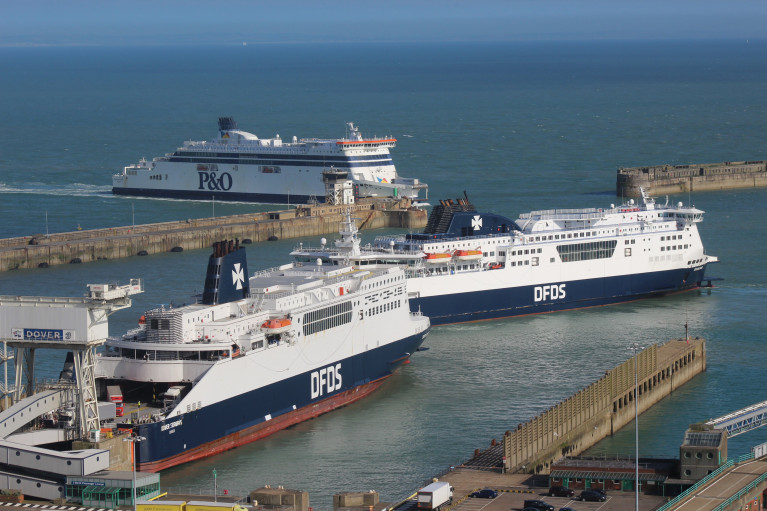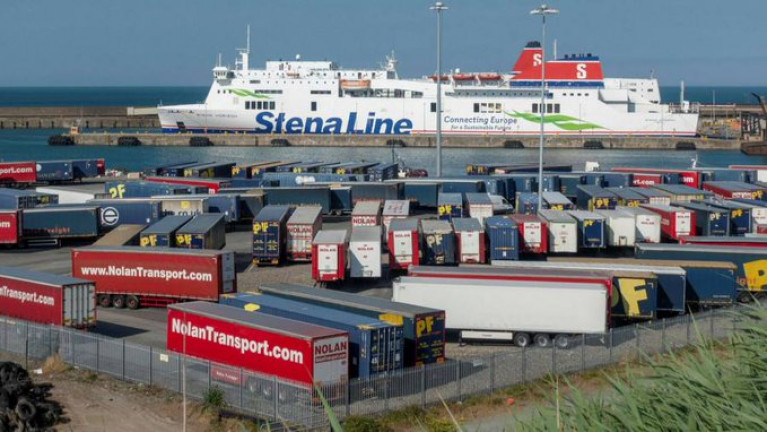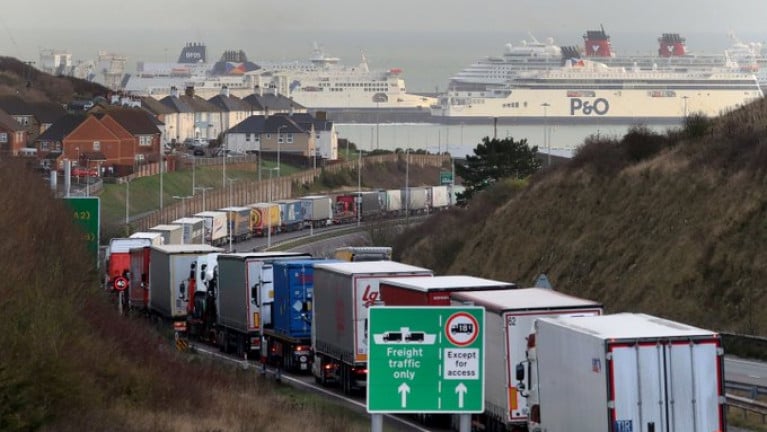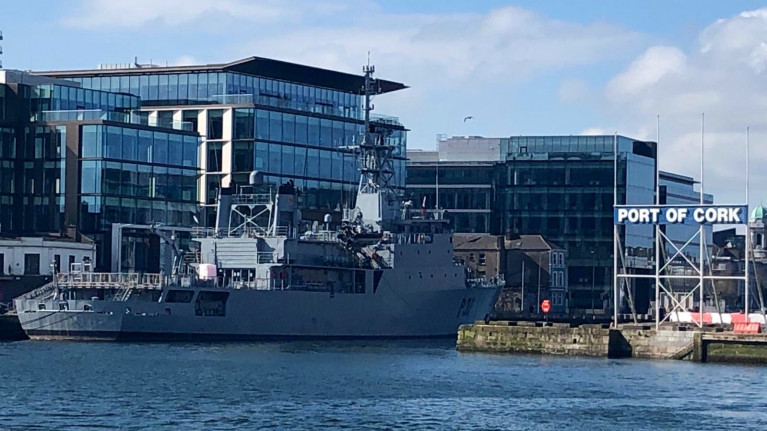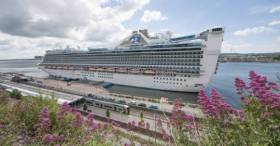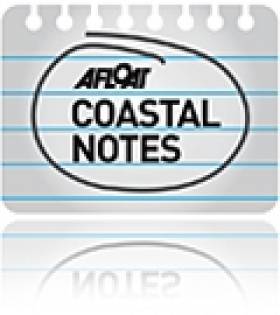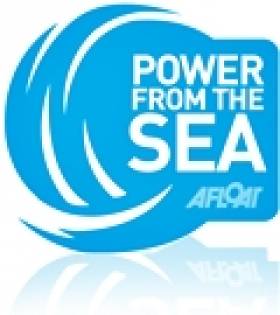Displaying items by tag: concerns
In the UK the Competition and Markets Authority (CMA) launched in November last year an investigation into an agreement between ferry companies P&O Ferries and DFDS A/S (operating on the Strait of Dover)
The agreement – known as a ‘capacity sharing agreement’ – provides a ‘turn up and go’ function for freight customers at the Dover and Calais ports, allowing them to take the next available ferry regardless of which of the 2 operators they booked with.
In addition the agreement aims to reduce journey times and congestion at ports for freight customers, while also providing broader potential benefits for supply bottlenecks and the wider economy.
While the CMA recognises the flexibility such an agreement allows, it is concerned that aspects of the companies’ arrangements could, if unaddressed, ultimately lead to higher prices and fewer sailings.
For example, when implementing this agreement, P&O and DFDS created a single schedule to space out the firms’ departures more evenly. However, as part of this, the companies also removed some journeys entirely from their schedule and documentation gathered by the CMA showed they planned to further reduce the number of sailings in the future. Such behaviour could lead to higher prices and less frequent journeys for both tourists and freight customers.
The CMA is also concerned that the agreement could encourage each company to cancel off-peak sailings at short notice because it will allow them to keep revenue from customers even if they travel on the other firm’s ferry. Such cancellations would cause disruption to freight and tourist customers on the busy Dover-Calais route and could also lead to higher prices.
In addition, the CMA believes the agreement has the potential to fix the amount of freight customers each firm carries in relation to the other. Fixing amounts in this way would likely reduce the companies’ incentives to compete for customers by offering lower prices and better service quality.
Following CMA intervention, the companies have proposed to commit to:
- not agree with one another the number of sailings that each company operates
- put strict limits on the number of sailings that they may cancel
- amend the agreement to make clear that it does not fix the amount of freight customers that either company may carry
Michael Grenfell, Executive Director of Enforcement at the CMA, said: The ‘turn up and go’ function this agreement provides is without doubt a positive thing for customers. However, as the UK’s competition authority, it is essential that we scrutinise business coordination to make sure it doesn’t lessen competition.
We found the agreement between P&O Ferries and DFDS was at risk of breaking competition law and could ultimately lead to higher prices and fewer sailings taking place – which is why we stepped in.
We have taken a close look at the commitments offered by these firms, and will also carefully consider any responses to our consultation, to see whether our concerns are addressed. If they aren’t, our investigation will continue.
The CMA will now consult on the commitments offered, providing an opportunity for third parties to voice any thoughts or concerns. Any responses must be made by 5pm on 4 July 2022 and will be considered as the CMA reviews the commitments offered by P&O and DFDS.
For more information, visit the Investigation into a capacity sharing agreement between P&O Ferries and DFDS case page.
Concerns from Exporters Ahead of New Brexit Regulations
There have been concerns expressed about the state of readiness among Ireland's exporters for the next batch of post-Brexit regulations which are due to come into effect in October.
At the moment, products coming from the UK, which is now a non-EU country, can be subject to customs and other checks when they arrive into Irish ports.
From 1 October, the process will also apply for goods going in the other direction.
The new checks will relate to any produce which is of animal origin and will mean that exports will need to have export health certificates before entering the UK.
The Minister for Agriculture, Food and Marine Charlie McConalogue has encouraged producers and exporters to do all they can to get ready for the new regime.
However, some in the sector are worried that the new UK certification system and inspections will lead to delays and extra costs.
Kieran Tracey of Nolan Transport, now one of Europe’s biggest transport companies, with food and other agricultural products accounting for a large percentage of its transit business, said there needs to be more "conjoined thinking" between the different Irish State agencies involved in checking exports.
The opening weeks of the post-Brexit era saw delays for haulage companies as they dealt with the new round of paperwork and checks, he said, and more headaches could be looming.
More can be read from RTE News here.
Concerns from Irish Over Delays at UK Ports: ‘If it is Bad Now, it Will be Standstill in January’
Lorries creating long tailbacks at English Channel ferry ports caused by Brexit stockpiling has cost Irish transport firms lost time, heavier overheads and valuable delivery slots, industry insiders said.
Irish lorries have been caught up in road-side “stacking” of vehicles over the past week and logistics businesses fear that traffic gridlock around the Kent ports of Dover and Folkestone and at Calais in France are a foretaste of more severe disruptions once Brexit checks start in January.
Laurence O’Toole, managing director of Co Galway-based O’Toole Transport, said he had to hire extra drivers in the UK for next-day deliveries of seafood from Ireland and Scotland to France because of seven-hour delays at the ports.
This has added costs of up to 40 per cent and reduced productivity at his firm, which transports produce to and from a major seafood distribution hub in Boulogne-sur-Mer in northern France.
Further reading from The Irish Times here.
Crew Shortages Causes Concern Threatening Naval Service Missions at Sea
Crew rostering of the Naval Service now have to frequently postpone seagoing missions due to its chronic manpower shortage and the effects of Covid-19.
Within the last year the service’s six operational ships have been regularly operating with close to the bare minimum of crew members, meaning if a small number of sailors become unavailable and no replacements can be found, the ships cannot go to sea.
In January, The Irish Times reported the LÉ Ciara was forced to delay a patrol mission for three days as it sought replacement crew members. According to senior Naval officers this has now become a regular occurrence.
In response to queries, a spokeswoman for the Defence Forces said “it is not uncommon for patrols to be delayed if an essential crew member is unable to sail due to force majeure”.
She said the Naval Service operated a “family-friendly policy” of giving replacement crew members 72 hours before deployment.
“Unfortunately, due to Covid-19, there has been a recent and expected rise” in the number of incidents where a replacement crew member cannot step in.
Naval sources also expressed doubt the Government’s new “loyalty scheme”, which offers a bonus of up to €10,000 a year for seagoing duties, would make a significant difference in the number of personnel leaving the Naval Service.
The scheme only applies to personnel with more than three years’ service, meaning there is little incentive for recently graduated personnel to stay on if they are offered employment in the private sector, they said.
Much more from the Irish Times can be read here.
Concerns on Environment Raised About Cruise Liners in Cobh, Cork Harbour
Concerns about the environment have been raised about cruise liners that dock in Cobh, Cork Harbour.
Local councillors were invited aboard one of the largest ships in the world, the ‘Norweigan Getaway’, by the Port of Cork to see how the ship operates.
However, one councillor told the EchoLive.ie, he “came away with an existential angst over the scale of the environmental problems we face.”
Green Party Cllr Alan O’Connor says he sees environmental concerns, both in the immediate effect such vessels have on Cobh and Cork Harbour, as well as the impact in terms of the worldwide large-scale effect of the industry.
Internationally there is growing concern about the environmental impact that cruise ships have.
By the end of 2019, according to Cllr O’Connor around 100 cruise liners will dock in the Port of Cork, with up to 110 expected in 2020. Those figures have been on the rise since 2014 when 53 cruise liners docked there, bringing more than 142,000 passengers and crew to Cork.
Cllr O’Connor acknowledges that many people's livelihoods depend on the tourists coming from the cruise liners, with many buses taking people to locations all across Cork including Blarney Castle, while others stay around the Cobh area.
“For Cobh, I got an estimated figure of €30,000 total spend by visitors from this boat,” he said. However, he’s questioned the sustainability of it: “At what stage must the environment come first?” he asked.
For further reading click here.
Details Sought on Noise Levels Over Proposed Larne Lough Gas Plant
#LARNE LOUGH - Larne Council has looked into the concerns of local residents over a proposed £250 million (€300 million) natural gas plant at Larne Lough, the Larne Times reports.
Islandmagee Storage Limited (IMSL) has applied for planning permission for a 500 million cubic metre natural gas storage facility in Permian salt beds almost a mile beneath the lough, which is claimed would satisfy the North's peak demand for gas for over 60 days.
But locals have spoken out with their fears over noise levels, health and safety, pollution and the potential effect on tourism in the area.
Larne Council’s environmental health department carried out its own research into the proposed facility, taking these concerns into consideration.
It found that there was "no huge issue in terms of noise levels" where similar facilities are established throughout the UK and that the effect on tourism would be negligable.
However the department was “not yet happy” with data supplied by IMSL regarding noise levels and would be seeking more detailed information.
The Larne Times has more on the story HERE.
Plan to Power Edinburgh with Giant Windfarm
Plans are afoot to power Edinburgh with a giant offshore windfarm, the Edinburgh Evening News reports.
The £1.2 billion (€ 1.37 billion) project proposed by Irish group Mainstream Renewable Power could see as many as 130 turbines generate power for up to 335,000 homes.
The turbines would be installed 30km north of Dunbar, East Lothian, though a number would be visible from the coastline.
Concerns have been raised by East Lothian residents at a consultation hearing regarding the environmental impact of the project, dubbed Neart na Gaoithe (might of the wind), though wildlife and environmental surveys are still being carried out.
Any final go-ahead on the windfarm scheme would have to be given by the Scottish government.
As previously reported on Afloat.ie, Mainstream Renewable Power - headed by Eddie O'Connor - has signed deals for windfarms in South Africa and Alberta province in Canada.
The Evening News has more on the story HERE.



























